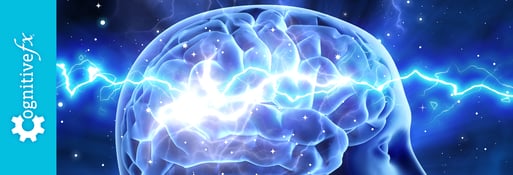The Truth About Neuroplasticity
Dr. Norman Doidge M.D. is a psychiatrist and a psychoanalyst. He has written many books including New York Times Best Seller, “The Brain that Changes Itself.” He also has written “The Brain’s Way of...

During the holidays it gets hectic and extremely stressful, particularly for those who already are trying to cope with everyday life with post-concussion syndrome or a concussion.
Some of the symptoms of post-concussion syndrome include:
Many times, the holiday bustle tends to heighten symptoms, making it hard to enjoy the season. Here you will find 5 ways you can help those you love to have a more enjoyable holiday.
The holidays have been called the busiest season of the year. When we are patient with one another it makes things less stressful and overwhelming. Taking time to slow down and enjoy the moments can help everyone have a more enjoyable time.
One way to show your patience is to allow your loved ones the time and space to do things on their own. You can still let them know you are there to help, but give them the space to come to you when they are ready. It is important for individuals who are recovering to know they are capable of doing things, and to feel your confidence in their abilities, even if it is hard for them. Patience can help make things easier and more enjoyable as we all strive to do our best this holiday season.
Having a space that is quiet that they can take a break from the group can be helpful. It can be helpful for them to know that they can use that space whenever they need a little break, without judgement. Taking breaks is important and can help them have a more enjoyable time. De-stimulation helps the mind calm down when overwhelmed.
Socializing can be challenging for those who are dealing with long-term concussion symptoms. When we get together it can be fun and exciting, but when the music is loud than people also tend to talk louder, making it an overwhelming experience for those who are injured. Even talking with people in large groups or for extended periods of time can be overwhelming.
Being aware of noise levels, including what is contributing to the level of noise, is it the TV or the music level, and see if it can stay at a calmer level. That little bit of extra effort will be very helpful to those who are easily overwhelmed by noise, and crowds.
Instead of saying things like “you should be better already”, or “you look just fine”, show empathy and compassion. Questions like “how is your problem?”, or “are you back to normal yet?”, will not show support or kindness to those in the recovery process.
Just because someone looks fine, it doesn’t mean that they are not injured, or that they are not trying to get better. Recovering from a concussion can take months to years for some people, and when they have compassion and support throughout their recovery, it can be more helpful during the recovery process. When they feel like those they love are disappointed in them, it can halt or even inhibit their recovery process.
If they are not able to participate in the holiday traditions at the level you wish they would, try to treat them how you would like to be treated. Dealing with post-concussion symptoms on a daily basis can be exhausting, and exhaustion is already a side-effect of a concussion. Know that if they are unable to make it or participate fully, it does not mean that they do not care, or that they don’t wish that they could come and participate. Treating them how you would like to be treated is one of the best ways to show that you care and wish they could make it, even if they can’t.
This post was written by individuals who lived with post-concussion symptoms for many years. Our hope is that as you apply these tips into your approach to the holidays it can make this season more enjoyable and fun for everyone.
What other tips and ideas do you have that could help someone you love to better enjoy the holidays?
Comment below with your ideas!

The "Cognitive FX Team" is a collaborative ensemble of distinguished doctors, therapists, and practitioners. Our experts are pioneers in the field of neuroimaging and concussion treatment. With extensive experience and a strong commitment to patient care, our team excels in utilizing cutting-edge technologies, such as functional MRI (fMRI), to provide personalized diagnostic and treatment strategies. Our renowned professionals have published groundbreaking research, developed innovative neuroimaging biomarkers, and conducted thousands of individualized patient assessments. We take pride in our holistic approach to patient care, focusing on physical, cognitive, and emotional aspects of recovery. As leaders in the industry, the Cognitive FX Team is dedicated to advancing the science of concussion diagnosis and treatment to provide our patients with the highest level of care and support.

Dr. Norman Doidge M.D. is a psychiatrist and a psychoanalyst. He has written many books including New York Times Best Seller, “The Brain that Changes Itself.” He also has written “The Brain’s Way of...

The brain loves taking the path of least resistance. This is true for blood flow and also for sending the communication signals in the brain when neurons are firing. Even a simple task requires...